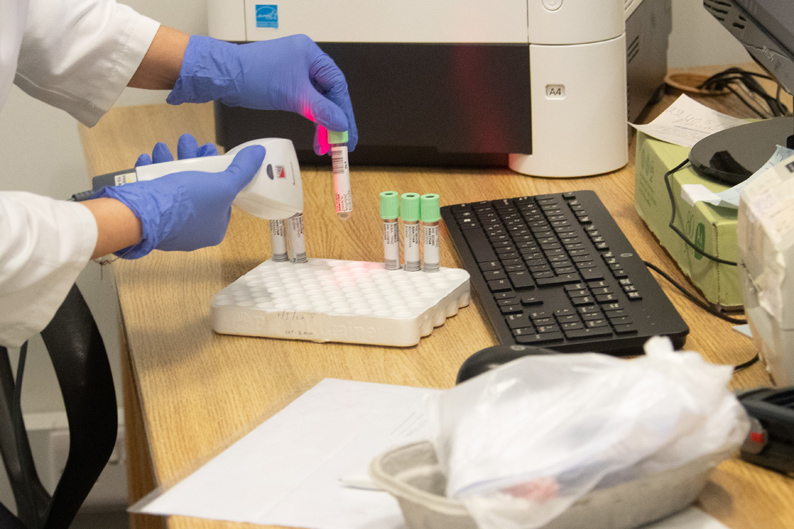Cyprus is struggling to get the coronavirus under control, as the Health Ministry’s latest data show a clear upward trend in daily new cases, while the age of new cases and hospitalisations is dropping.
The island’s increased infection rate is mainly attributable to the UK variant B.1.1.7 of the virus which is said to be 70% more infectious than other variants. On Friday, the ministry said that the UK variant is predominant in the community, as all 111 samples checked in March, all came back positive for the variant B.1.1.7.
The report issued on Friday by the ministry’s epidemiological monitoring team, covering the fortnight between 24 March and 6 April, said the Cyprus 14-day cumulative notification rate is a 621.1 per 100,000 inhabitants, up from 548.5 last week.
Cyprus remains classified as a dark red zone as its notification rate is above the 500 mark set by the European Centre for Disease Control (ECDC).
During the period, 5,515 coronavirus cases were diagnosed from 61,761 PCR and 637,220 rapid antigen tests.
Limassol, the virus’ epicentre in Cyprus, performed slightly better with its notification rate dropping from 978.7 per 100,000 residents to 899.7/100,000 in the 14 days the report covers, with Covid-19 concentrations in sewage water starting to decrease for the first time.
However, other districts have recorded a significant increase in their notification rate, pushing Cyprus’ overall rate even higher.
Rate rising in Nicosia, Larnaca
Specifically, the cumulative diagnosis rate in Nicosia and Larnaca showed a significant increase, rising from 358 per 100,000 to 524.2 in the capital and from 404.7 per 100,000 to 555.7 in Larnaca.
During the period covered by the report, Limassol still had the majority of cases, but Nicosia has closed the gap. Limassol reported 2,234 cases representing 40.5% of the total, while Nicosia followed with 1,816 cases (32.9%).
Larnaca is next with 828 (15%), Paphos with 343 (6.2%) and Famagusta with 173 (3.1%).
According to the report, all districts recorded an increase in their positivity rates, ranging between 0.2% and 0.4 %, with an islandwide increase from 0.6 to 0.9 %.
A total of 98.6% of cases, or 5,436, were local infections, with only 79, representing 1.4%, being imported.
An additional 121 positive cases (2.2%) resided either in the British bases or abroad, with no available data for one case.
The median age for new cases is dropping as it is now 34 from 35 last week.
By age group, cases included 1,176 infants, children and adolescents aged 0-19 years-old (21.3 %), 3,594 adults aged 20-59 years (65.2 %), 744 people aged 60 years and older (13.5 %), while data was not available for one case.
Increase of ICU patients
The ministry on Friday also reported a slight increase of ICU patients as hospital admissions remain high, with almost half of the patients coming from Limassol and an increase in hospitalisations from Nicosia and Larnaca.
As the ministry noted in the report, the majority of new admissions are now under 60, while the average number of admissions in people aged 70 to 74 has fallen. The drop in patients of older ages is attributable to the country’s vaccination rollout, said the ministry.
As of April 8, there were 208 people in hospital, with a median age of 63. The median age of some 29 patients in ICU is 66 years. 23 patients are intubated.
Some 127 patients in hospitals have comorbidities, while 47.6 % of patients come from the Limassol district, according to the report.
As of April 6, the death toll for the whole of Cyprus was at 268, with 100 of those who have died so far from COVID-19 being Limassol residents (37.7 %), 91 from Nicosia (34 %), 44 from Larnaca (16.4 %), 19 from Paphos (7.1 %), 11 from Famagusta (4.1 %) and three (1.1 %) reported either resided in the British bases or abroad, with data not available for one.










